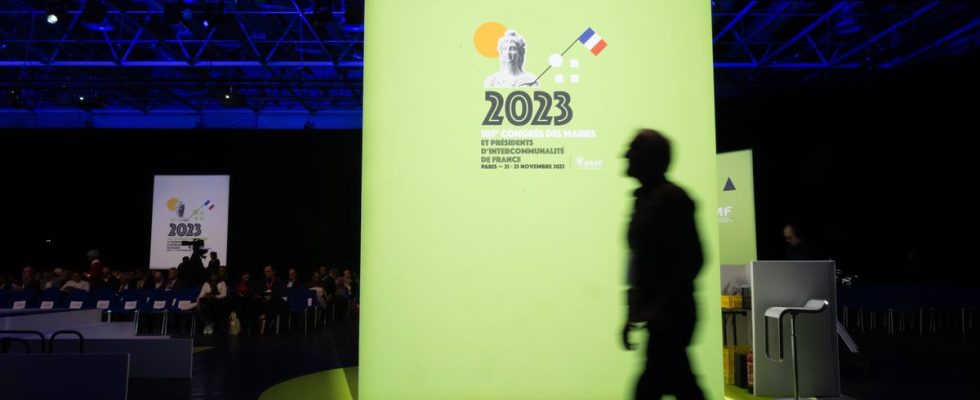At the Congress of Mayors,
If they are present at the show, it is because they have not given up. Thousands of local elected officials are meeting this week for the traditional Congress of the Association of Mayors of France (AMF), Porte de Versailles, in Paris. A major rally taking place in a context of “Republican fatigue”, with an exceptional number of mayors having resigned since 2020 (+ 30% compared to the previous mandate).
Despite the increase in violence and a feeling of “helplessness”, the mayors met this Wednesday demonstrated their attachment to their municipality. 20 minutes asked them what still motivates them today to wear the tricolor scarf.
They feel useful: “That’s what keeps us going”
This is the answer that comes first among the elected officials questioned. “If there are no mayors, our territories will no longer move forward. We are here to promote them,” breathes Christophe Sonrel, mayor of Damelevières, in Meurthe-et-Moselle, since 2014. “I like to find solutions to problematic situations, with all my heart and all my soul,” says Marie- Pierre Fauvel, mayor of Saint-Jean-d’Elle, in Manche. I showed up to give my all, obtain grants, launch projects to satisfy the residents,” she adds.
“My commitment has meaning because I can improve people’s lives. I renovated a 1,200-seat performance hall, and I have a pang in my heart every time I see people having fun in front of artists, continues Daniel Fasquelle, mayor of Touquet-Paris-Plage, in Pas -de-Calais, since 2008. After years of struggle, discontent, opposition, people come to thank us. This is our reward, what keeps us going.”
They like to build: “We do things that are visible”
It’s the dream of fans of SimCity and other management video games: seeing a city born little by little before their eyes. “Mayor is the mandate of a builder,” thinks Benoit Vuillemin, elected official from Saône, in Doubs. “As mayor, we build, we do things that are visible. There, I am reviewing the entire transport system. I’m launching a subdivision of 239 housing units, I’m launching a France services house, that’s very concrete. I find a bit of the same outcomes as in the business world,” he says.
“It’s exhilarating to start from a blank copy when you put together a project. There are all the standards, all the constraints to obtain subsidies. You have to be passionate to get to the end, but I like this mayor-builder side,” Christophe Sonrel also enthuses. “We build our city, little by little. The most concrete is obviously public buildings, agrees Philippe Gras. There, we have just renovated the Clock Tower, which dates from 1850. It is a source of great pride, we know that we have worked for one or two centuries,” indicates the elected official from Codognan, in Gard.
They have no choice: “They came to get me”
Other elected officials recognize that the mandate fell on them. In small villages, where there is often a shortage of candidates, it is sometimes enough to be there in the right place, at the right time. “They came to get me, I didn’t really have a choice, no one wanted to show up,” laughs Jean-Paul Welzer, mayor of Saint-Agnant-près-Crocq, at the head of 200 residents of this small village in Creuse since 2014. “The former mayor told me: ‘you cannot leave the town under supervision’. So I said ‘yes’, there must be someone at the head of these cities, to keep them alive and defend them.”
It’s a bit the same story for Paul Braud, mayor of Saint-Jean-Lachalm, in Haute-Loire since 1995. “I was told ‘the mayor stops, we will have to take his place’. Somehow the door was opened for me, and I went in, he smiles. It’s not always easy, but I was born here. I care about my village. It’s my heritage.”

